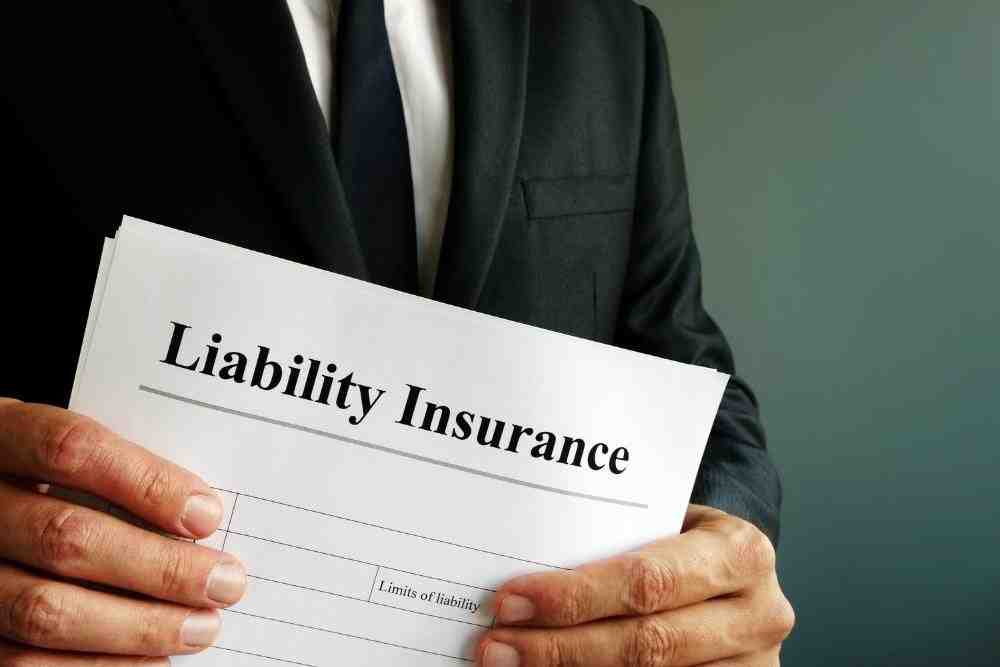When it comes to protecting our belongings, many people wonder about the role of insurance. One common question is, “Does liability insurance cover theft?” Liability insurance is designed to protect you from legal claims if someone gets hurt or if you accidentally damage someone else’s property.
However, it doesn’t cover theft. In this article, we will explore what liability insurance really covers, how it differs from other types of insurance, and what you need to know to keep your valuables safe. Whether you’re a homeowner, renter, or car owner, understanding your insurance options is important for your peace of mind.
What is Liability Insurance?

Liability insurance protects individuals and businesses from claims resulting from injuries or damages they may cause to third parties. This coverage is essential for anyone who could be held legally responsible for causing harm, whether through negligence or unintentional actions.
Understanding Texas Car Insurance Rates
The primary purpose of liability insurance is to cover the legal costs and potential payouts that the insured may face if they are sued for damages. For instance, if a person causes an automobile accident that injures another party, their liability insurance would cover the medical expenses and any legal fees associated with the claim.
There are several types of liability insurance, each tailored to cover specific risks:
- General Liability Insurance: Covers common business risks, including bodily injury, property damage, and personal and advertising injury.
- Professional Liability Insurance: Also known as Errors and Omissions (E&O) insurance, it protects professionals against claims of negligence or mistakes in their services.
- Product Liability Insurance: Provides coverage for businesses against claims related to injuries or damages caused by their products.
- Employer’s Liability Insurance: Covers claims from employees who suffer work-related injuries or illnesses not covered by workers’ compensation.
- Directors and Officers (D&O) Liability Insurance: Protects company directors and officers from personal losses if they are sued for wrongful acts while managing a company.
- Cyber Liability Insurance: Covers businesses against data breaches and other cyber-related incidents.
Does Liability Insurance Cover Theft?

Liability insurance generally does not cover theft. Its primary function is to provide financial protection against claims for bodily injury or property damage that you may cause to others.
For instance, if you accidentally injure someone in a car accident or damage their property, liability insurance will help cover the costs associated with those claims. However, it does not extend to losses related to the theft of your own property, such as a stolen vehicle or personal belongings.
If your vehicle is stolen, you would need comprehensive car insurance, which covers theft and damage from incidents other than collisions. Comprehensive coverage can reimburse you for the current value of your vehicle if it is stolen and also covers damages resulting from break-ins, such as broken windows or locks.
Additionally, personal items stolen from your vehicle are typically not covered under auto insurance; instead, they may be covered by homeowners or renters insurance.
Insurance Types That Cover Theft
Several types of insurance cover theft, each catering to different needs:
- Comprehensive Car Insurance: This type of coverage protects against theft of the vehicle itself, stolen parts, and damages from break-ins, such as broken windows or locks.
- Homeowners Insurance: This policy typically covers personal property theft within the home and may extend to items stolen away from the home, such as belongings taken from a vehicle.
- Renters Insurance: Similar to homeowners insurance, renters insurance covers personal belongings against theft, even if they are stolen outside the rented property.
- Commercial Property Insurance: This protects businesses from losses due to theft and burglary, covering physical assets against various risks.
- Theft Insurance: Specifically designed to cover losses due to theft, this insurance can protect both individuals and businesses from financial losses resulting from stolen goods.
- Crime Insurance: This type provides coverage for businesses against theft and other criminal acts, including employee theft or embezzlement.
These policies vary in terms of coverage limits and exclusions, so it’s essential to review each option carefully based on individual or business needs.
Why Liability Insurance Doesn’t Cover Theft?
Liability insurance is designed to protect against claims arising from injuries or damages caused to third parties, not the insured’s own losses. This means it covers situations where the insured is legally responsible for harm to others, such as bodily injury, property damage, or personal and advertising injury. Theft, on the other hand, represents a direct loss to the insured party, which is not the focus of liability insurance.
The primary purpose of liability insurance is to cover legal costs and any resulting payouts for which the insured might be found responsible. For example, if a customer slips and falls in a store, liability insurance would cover their medical expenses and any legal fees if they sue. However, if the store itself is burglarized, the loss of merchandise or damage to the property would not be covered under liability insurance.
Preventing Insurance Rate Hikes After an Accident
To protect against theft, businesses and individuals need to secure additional types of insurance, such as commercial property insurance, business crime insurance, or homeowners/renters insurance, which are specifically designed to cover losses from theft.
Protecting Your Business from Theft
Protecting your business from theft involves implementing a combination of security measures and best practices. Here are some effective strategies:
- Install an Alarm System: A robust alarm system can deter potential thieves and alert you to any unauthorized access. Ensure the system is monitored 24/7 and can be controlled remotely.
- Use Surveillance Cameras: Installing CCTV cameras both inside and outside your premises can help monitor activities and provide evidence in case of theft. Make sure the cameras cover all critical areas, including entry points and high-value inventory.
- Secure Entry Points: Regularly check and secure all doors, windows, and other entry points. Use high-quality locks and consider installing security bars or grilles for added protection.
- Perform Background Checks: Conduct thorough background checks on all employees, especially those handling sensitive information or valuable assets. This can help prevent internal theft.
- Implement Access Control Systems: Limit access to certain areas of your business to authorized personnel only. Use key cards, biometric scanners, or other access control systems to manage entry.
- Train Your Staff: Educate your employees about security protocols and the importance of vigilance. Encourage them to report any suspicious activities immediately.
- Maintain Inventory Records: Keep detailed records of your inventory and conduct regular audits. This helps in quickly identifying any discrepancies and potential theft.
- Enhance Physical Security: Improve the physical security of your premises by installing security lighting, fencing, and signage that warns of surveillance and security measures.
- Develop a Security Plan: Conduct a risk assessment to identify vulnerabilities and develop a comprehensive security plan tailored to your business needs.
Financed Car Insurance Requirements
By implementing these measures, you can significantly reduce the risk of theft and protect your business assets.
What to Do if Theft Occurs?
If your business experiences theft, it’s crucial to act swiftly and methodically to mitigate the damage and prevent future incidents. Here are the essential steps to take:

- Secure the Area: Immediately secure the affected area to prevent further loss or damage. This might involve locking doors, restricting access, and preserving the crime scene for investigation.
- Notify Law Enforcement: Contact your local police department to report the theft. Provide them with all necessary details and cooperate fully with their investigation.
- Gather Evidence: Collect any available evidence, such as surveillance footage, witness statements, and physical evidence. This will be crucial for both the police investigation and any insurance claims.
- Inform Your Insurance Provider: Notify your insurance company as soon as possible. Provide them with a detailed account of the incident and any evidence you have gathered. Follow their instructions for filing a claim.
- Review Security Measures: Assess your current security protocols to identify any weaknesses that may have contributed to the theft. Consider upgrading your security systems, such as installing better locks, alarm systems, or surveillance cameras.
- Communicate with Stakeholders: Inform your employees, customers, and other stakeholders about the incident as appropriate. Transparency can help maintain trust and prevent the spread of misinformation.
- Conduct an Internal Investigation: If there is a possibility of internal involvement, conduct a thorough investigation within your organization. This may involve reviewing employee access logs, conducting interviews, and consulting with legal counsel.
- Implement Preventive Measures: Based on your findings, implement new security measures and protocols to prevent future thefts. This might include employee training, stricter access controls, and regular security audits.
- Document Everything: Keep detailed records of all actions taken, communications, and findings related to the theft. This documentation will be valuable for legal purposes and future reference.
By following these steps, you can effectively manage the aftermath of a theft and strengthen your business’s defenses against future incidents.
FAQs
Q 1. What is the difference between liability insurance and comprehensive insurance?
Ans. Liability insurance covers damages and injuries you cause to others, while comprehensive insurance covers theft, vandalism, and other non-collision-related damages to your own property.
Q 2. Can I add theft coverage to my liability insurance policy?
Ans. Typically, theft coverage is not an add-on to liability insurance. You would need a separate policy, such as comprehensive or commercial property insurance, to cover theft.
Q 3. Does liability insurance cover the theft of personal items from my car?
Ans. No, liability insurance does not cover personal items stolen from your car. Comprehensive car insurance or homeowners/renters insurance would be needed for such coverage.
Q 4. What should I do if my insurance claim for theft is denied?
Ans. If your claim is denied, review the denial letter for specific reasons, gather additional evidence if needed, and consider appealing the decision or seeking legal advice.
Q 5. Are there any exclusions to theft coverage in comprehensive insurance?
Ans. Yes, comprehensive insurance policies may have exclusions, such as theft due to negligence (e.g., leaving your car unlocked). Always check your policy for specific exclusions.
Q 6. How does business crime insurance differ from commercial property insurance?
Ans. Business crime insurance covers a broader range of theft-related incidents, including employee dishonesty and fraud, while commercial property insurance typically covers the physical theft of business assets.
Conclusion
In summary, liability insurance does not cover theft. Its main job is to protect you from legal claims if someone gets hurt or their property gets damaged because of you. If you’re worried about theft, looking into other types of insurance, like homeowners or renters insurance, can help protect your belongings.
Make sure to review your insurance policies and talk to an insurance agent if you have questions. Having the right coverage can give you peace of mind and help you feel secure in case something goes wrong.

Shubham is a passionate insurance expert with years of experience in the industry. I write about home, auto, travel, life, and health insurance to help readers make informed decisions. My goal is to break down the details of coverage, costs, and claims in a straightforward, easy-to-understand way, so you can protect what matters most without the confusion.

